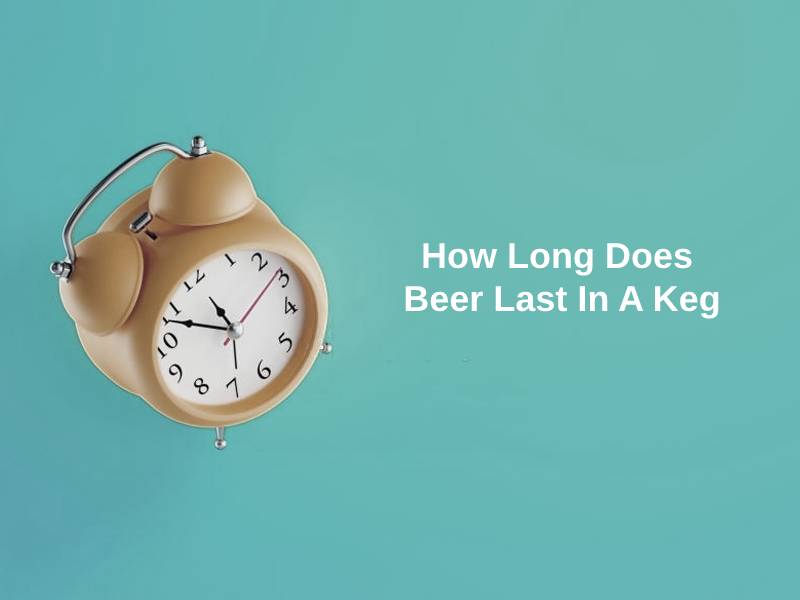Exact Answer: Up to 120 days
The shelf life of the beer in a keg would be around 120 days depending on the types of beers. The material of the keg would also affect the shelf life of the beer. The beer is known for its long shelf life, but there are few conditions that would affect the lasting time of beer in a keg.
There are many methods by which the beer can be dispensed in a keg. The method someone chooses for dispensing the beer inside the keg would influence the lasting time of beer.
The quality of beer would also predict the shelf life of the beer in a keg. The temperature of the place where the beer in a keg would be stored should be constant. Once the keg is filled at the brewer, then the countdown would start for its shelf life.

How Long Does Beer Last In A Keg?
| Beer In A Keg | Time |
| In days | 120 days |
| In months | 4 months |
The type of pump used for pumping air into the keg would also influence the lasting time of a keg. Most people use the manual pump for a keg. Over-pumping the keg may also affect the quality of beer. Over-pumping would cause excessive foam in the beer.
Therefore, people should do the pumping of beer as per the requirement with normal pressure. The manual pump is not a good idea if you want to extend the lasting time of the beer. Some amount of oxygen is used by the manual pump to pressurize the keg. The contact of oxygen with the beer would bring the symptoms of spoilage in it.
The oxygen exposure would cause a change in the taste and flavors of the beer. Sometimes, the beer inside the keg would not last for more than 30 to 60 days depending on how you store and use it. The basic rule to keep the beer lasting longer inside the keg is to avoid excess oxygen exposure to the beer.
If someone sees the beer is changing its taste or flavors, then you should try to complete the beer in 3 to 5 hours. The use of a kegerator would increase the shelf life of the beer. The kegerator uses CO2 for the keg and this would increase the lasting time of the beer.
Using a kegerator would be more beneficial for maintaining the quality of beer than using a manual pump. Using a kegerator would not only prevent the oxygen exposure but would avoid excess foaming of the beer. The pasteurized beers would last around 4 to 6 months in a keg. If the beer is not pasteurized, then it would not last long.
Why Does Beer Last This Long In A Keg?
There are many things that would affect the shelf life of beer in a keg. The temperature is one of the most important conditions to be considered before predicting the lasting time of beer. The keg should be stored at a temperature around 38 degrees Fahrenheit.
If the temperature goes above 38 degrees Fahrenheit, then it would cause the beer to go bad fast. The too cold temperature would not support the flavors and taste of the beer. If the temperature goes below 29 degrees Fahrenheit, then the flavors of the beer would start degrading.
People should make sure the area where the keg is stored should not have any bacteria. The bacteria or pathogens near the keg would not be suitable for the quality of the beer in a keg as they can easily enter the unsealed keg. There are two conditions that people can satisfy to make the beer last for 4 to 6 months without any spoilage symptoms.
The first condition is to avoid the contact of beer with oxygen. The second way is to provide an adequate temperature to the keg. The quality of beer would also make a huge impact on the lasting time of the beer in a keg. The good-quality pasteurized beer would last for 4 to 6 months.
The low-quality beer would not last longer than 2 to 3 months inside the keg.
Conclusion
The lasting time of the beer in a keg would be around 120 days. Some beers may last for around 3 months, depending on the storage and usage. Avoiding the sun, and oxygen exposure would make the beer stay fresh for around 3 to 6 months. The temperature of the place where the keg is stored should be constant.
If the temperature fluctuation happens for a long time, then the beer would start losing its freshness.